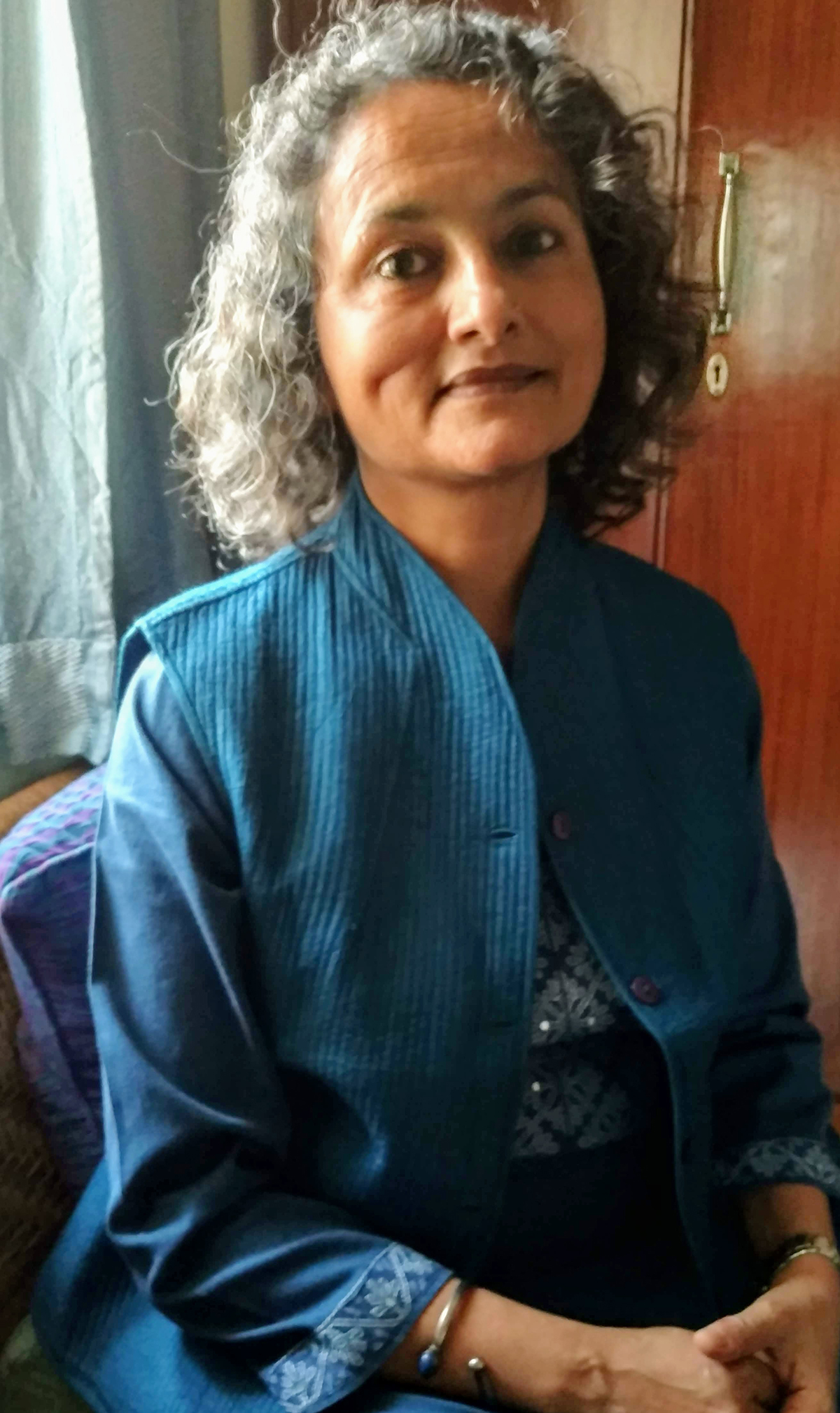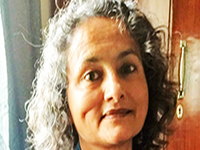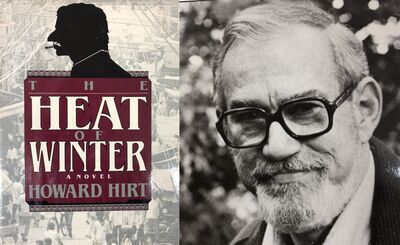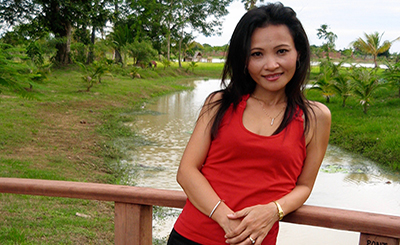
As I learn to listen better, I am able to make connections across languages and words glow with new meaning. It is this hidden power of words that makes dialogue possible across diverse spaces
“Munni bitiya, bingu se khelogi?” One of my early memories is the sound of a train whistle in the distance and my favourite friend Siddhiram gently setting me down under a giant tree upon a dusty cemented platform. The fine yellow dust was peppered by dark brown bingus that could briefly spin like a top and were rough to touch. He smelt faintly of bidis and his khaki shirt had long pointy collars. He would point at the crow on the branch, the parrot that flew past in a flutter of green, the fallen champa flower on the grass and make up imaginary stories. I understood some of what he said as I held on to his collar, but this line is what I recall completely. I can still taste the sweetness of the sound of ‘bitiya’ and the happy playful lilt of ‘kh-e-lo-gi’.
For as long as I can remember I have had a sharp listening ear for the sound of language. Words sounded fat or thin, flat or pointy, angry or sad. Some even smelled good and others felt orange or sea green. Who said them and whether it was cold or hot at the time would register as sharply as a stylus etching a tablet of wet clay and could be pulled out of the memory vault in all its kinesthetic glory. And then came the time when words moved from the realm of sound to when they were strewn across a background of creamy white. Festooned with drop caps in the beginning, stories popped out of this sea of words and they closed gently with curly end marks. I remember literally surfacing for air after binge reading a fat hard bound book with a castle on a mountain on the cover. Everything ceased to matter so long as I could immerse myself in the sea of words which made me taste things I had never eaten, took me down forest paths I had never walked and made me one with boys and girls and queens and witches and rabbits and lions that I had never met.
I was fortunate to be surrounded by two languages — Hindustani and English. I heard Hindustani in many forms — from the musical or guttural dialects of eastern and western UP to formal recitations in kavi sammelans and mushairas. There were also khayals and bhajans that embellished my vivid soundscape. I read everything that came my way. Hoardings, ads and notices painted on walls, newspapers and magazines and books in both languages. Moving from one language to the other was seamless and I don’t remember consciously trying to ‘learn’ either of them.
Many years later, in my personal and professional journey, I came to work with books. I also wanted my children to savour the joys of language and music and I began to hunt high and low for books that I could read to them. Finding books in English was easy enough but Hindi was another story. There were fewer books available and many of them could not match the production quality of the English books. Many of the Hindi magazines that existed in the years that I was growing up were nowhere to be found. Even with spirited support from the grandparents for songs and oral stories, I could not find as many books as I would have liked.
Soon after, I found myself involved with a large NGO working with primary education. The worrying reality of the acute lack of reading material for children in Indian languages and the direct impact of this on the reading abilities of children hit me squarely in the eye.
Large numbers of children were coming to school for the first time in their families and did not have much exposure to print. Even with the rich orality of the many languages in our country, the transition to reading became a mountain that was too hard to climb. They understood their mother tongues well, but there were not enough picture books and graduated exposure to print to leaven the journey to fluent reading. My little quibbles about inadequate Hindi books for my children paled in comparison to the enormity of what was happening to children across the country. Parents everywhere were sending their children to school and a very significant percentage of them were not able to read at grade level. The very promise of a school education stood jeopardised for the children who were falling behind in learning because the basic building block of reading was not firmly in place. While the lack of good books for children in the mother tongues of India was not the only reason for this, it certainly exacerbated the situation.
As a publisher and as someone who loved languages — the sound of them, the pulsing stories that they held, the many art forms that could spring forth to create kinesthetic experiences for all children — for me, the opportunity to publish multilingually was a serendipitous feast. There was the additional challenge of publishing at affordable prices so that the books and other material could reach the largest number.
I threw myself into the world of scripts, translations and feasible print runs. I learnt what true respect for each language meant — whether it was a ‘major’ or mainstream language or a ‘small’ language which may not even have a script. I learnt how to make the smallest book which was really only a folded A4 sheet but it had a colourful well-illustrated story and a book-like feel so that every child could get one. I learnt how to keep a tight hold on the production price line without giving up on quality. Contrary to traditional publishing wisdom, ideas such as freeing material from copyright and adopting Creative Commons licensing gave wings to many a story to soar to new climes and find new homes in many languages.
Workshops with authors for children’s books in different languages have been another revelation. Understanding ‘childhood’ from the varied vantage points of different languages while exploring the universality of what we all want for our children has been full of unexpected surprises. Whether it was working with authors from tribal languages or Urdu to create stories that speak for our times, the pulse quickens each time a book is born.
My love for the sound of languages has only grown as my ear gets trained to hear new notes in the orchestra. As I learn to listen better, I am able to make connections across languages and words glow with new meaning. It is this hidden power of words that makes dialogue possible across diverse spaces. Our feelings and thoughts find a home. All children deserve this comfort.
More from The Byword
Comments
*Comments will be moderated











